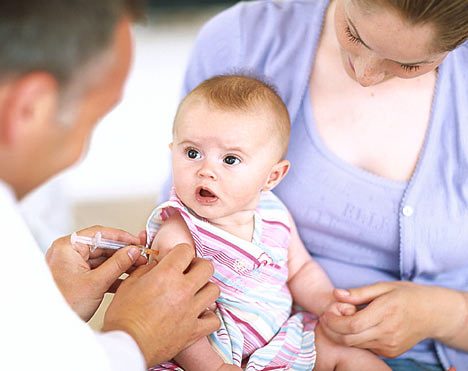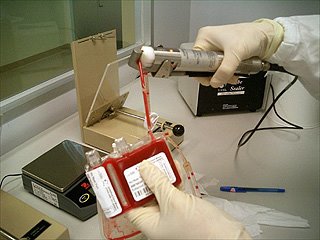Motherhood is such a big word. More than the state of being a mother or the relationship that a mother has with her child, motherhood entails a deeper meaning that only mothers themselves can identify with. It brings meaning to the life of everyone, and it fuels the sense of connection and satisfaction between mothers and their children through love and guidance. No matter how great a blessing motherhood is for most mothers, however, there are still certain issues surrounding the word that almost every mother has to face blow by blow. Through the years, these motherhood issues have been bones of contention for most people, especially among those who are directly involved in the situation. These concepts are among the things that mothers should understand and master before they even get off course. Here is a list of the ten most controversial issues surrounding motherhood:
10. Home schooling

Photo Source: http://doctorg.tappmd.com/files/2013/04/homeschooling.jpg
Home schooling or home-based education is common among mothers. Unlike schooling in a formal setting, home schooling involves staying at home and doing assignments given by a tutor. Though this practice has been adopted as an alternative form of education in other nations, most people still believe that going to a formal school is better than staying at home to study.
Some parents opt for home based education for their children for a broad range of reasons. Most of the time, mothers who opt for home schooling for their children are those who would not want their children to get bullied in crowded classrooms. Also, these mothers believe that it is better to study at home because it is more conducive for learning and it helps children achieve better focus when studying. This is hardly possible in a classroom setting, where 30-50 students normally crowd a single classroom and not everyone gets the same attention from the teacher.
9. Vaccination

Photo Source: http://tinyfeetbigheart.files.wordpress.com/2013/02/baby-vaccination-for-better-life.jpg
Vaccination involves the administration of a vaccine to an infant to stimulate his immune system, thus allowing him to develop adaptive immunity to pathogens. The common notion is that when a child gets vaccinated, he is less likely to catch diseases in the future because he is already immune to those diseases. Sometime in the past, however, there was a doctor who conducted a study and published a book that stated that the development of autism and other neurological conditions stem from vaccination. Since then, a good number of mothers have been opting not to get their babies vaccinated when in reality, they should. Just recently, the medical license of the doctor who published the misleading study was taken from him because of the confusion that he spurred among mothers. Since his study was published, there came a rise in the number of communicable diseases afflicting children.
8. Cloth Diapers vs. Disposable Diapers

Photo Source: http://www.b-ecochic.com/image-files/cloth-diapers-vs-disposable-2.jpg
Whether to use cloth diapers or disposable diapers has been a bone of contention among mothers. Both diapers have their own share of advantages and disadvantages, but mothers have got to pick the one whose advantages outweigh its disadvantages. Disposable diapers are reusable and create less waste than disposable diapers. Also, this kind of diaper is far less costly than disposable diapers because these diapers are washable while disposable diapers are not. For most mothers, however, disposable diapers are more convenient because they never have to wash every now and then. All they just have to do is to make sure that they never run out of stock. Also, they are more breathable and convenient, because with disposable diapers, they do not need to deal with complicated folds and pins. Some mothers who prefer cloth diapers, however, complain that disposable diapers increase the risk of diaper rash among their babies.
7. Discipline
 Photo Source: http://img.dailymail.co.uk/i/pix/2007/12_02/072discipline_468x351.jpg
Photo Source: http://img.dailymail.co.uk/i/pix/2007/12_02/072discipline_468x351.jpg
Mothers have different concepts of discipline. For some, spanking their children is the right way to teach their children discipline, while for some, this is not the way to go. A recent study in the United States showed that more than one third of parents in the United States prefer to spank their kids so they will be forced to behave as their parents would want them to. Whenever a child does something wrong, what most parents do is spank the child so he would learn his lesson. Several mothers go up against this practice, saying that using physical force does not teach children discipline but fear towards their parents. These mothers believe that they can bring up their child into becoming well-rounded individuals even without having to inflict physical pain on them. Mothers can choose not to become violent in rearing their children, though this is case-sensitive.
6. Organic Products

Photo Source: http://www.mummums.com/wp-content/uploads/carrots1.jpg
Most mothers would prefer feeding their babies with organic products, believing that they are healthier. While it is true that eating organics allows one to reduce his exposure to chemicals, many experts believe that it is not always so. In fact, a large group of pediatricians recently revealed that parents who buy organic food for their children are actually wasting money. Experts say that to believe that organic products are more nutritious than non-organic products is nothing but a false notion because the nutritional differences between conventional food and organic food are far more minimal than most mothers think. Most mothers also use organic milk to feed their babies believing that it is more nutritious than the processed ones, when in fact, it is not worth it. Mothers who are working on a limited budget should not go for organic because they are costly. Those who have more than enough budget argue that organic is still better, though.
5. Attachment Parenting

Photo Source: http://www.whitezine.com/images/Martin-Schoeller-Attachement-Parenting-Jamie-Lynne-Grumet-580×771.jpg
Attachment parenting refers to the tendency of a child to develop or form very strong emotional bond with his mother. One of the practices that lead to attachment parenting are co-sleeping with babies until they come of age, extended breast feeding and baby wearing. Some mothers believe that practicing attachment parenting allows them to produce healthier and better nurtured babies and children. On the other hand, those who oppose the practice believe that it only delays the socio emotional development and well-being of the child because he tends to become too much dependent on his mother. Today, the population of mothers is halved by this practice. Those who are up for attachment parenting argue that the practice is nothing but a simple demonstration of love, while those who think otherwise argue that this is detrimental to the development of a child and will do no good to him.
4. Breast-feeding vs. Bottle-feeding

Photo Source: http://www.momlogic.com/images/breastfeeding_vs_botlefeeding_pm-thumb-270×270.jpg
Determining whether to breastfeed or bottle-feed her baby is one of the first decisions that an expectant mother makes. Because the very first thing that a baby looks for as he gets out of her mother’s womb is milk, this is one of the most basic decisions that a woman makes as she enters motherhood. The common notion is that breast milk is the most valuable source of nutrition for babies because it helps defend the baby from harmful infections as well as protect him from allergies and other chronic conditions. But working mothers would prefer bottle-feeding their babies because they need to earn money and go to work. These mothers cannot afford to stay at home and breastfeed their babies the entire day, unless the earnings of their husbands are enough to provide for the needs of the family.
3. Scheduled Caesarean Sections

Cesarean section is a surgical procedure that is performed when a mother gives birth, characterized by one or more incisions made on her abdomen and uterus to deliver her baby. Normally, this procedure is the last resort when vaginal delivery poses death risk either on the mother or the child. Nowadays, however, some mothers who are capable of normal vaginal delivery would still opt for cesarean section because it is less painful. In fact, celebrities are known to have scheduled caesarean sections even months before the due date of the baby. This practice has been emulated by several mothers today, believing that this makes the birth of the child more convenient. Those who go for vaginal delivery argue that those who go for C-sections are harder to recover compared to those who go for normal delivery.
2. Natural Birth

Photo Source: http://www.babylifetime.com/wp-content/uploads/2011/05/natural-birth.jpg
Though cesarean sections are growing in popularity these days, giving birth the natural way is still generally the most preferred of most mothers. Mothers who have laboured and gave birth to their babies without the need for an epidural or medications are often prouder than those who underwent procedures because they were able to suffer the real pain of giving birth. However, some mothers are just not healthy enough to go through the natural way of giving birth so doctors prefer having them incised. Mothers who argue that those who go for c-sections are weaker should understand that what may be good for them may not be good for another.
1. Cord Blood Banking

PhotoSource: http://3.bp.blogspot.com/-wViheaKHk0E/TzaQWKi5a2I/AAAAAAAAAa4/01h9Xgpowtc/s1600/CordBloodBank-full.jpg
Cord blood banking is a practice wherein the blood from the umbilical cord of a baby is saved and stored in a facility for possible use in the future. The umbilical cord of a baby is the major source of stem cells, which are used today the way bone marrow cells are used to treat different kinds of illness, particularly leukemia. This is a more guaranteed match compared to a donor. Cord blood banking is a choice that mothers make. Most mothers oppose the idea of cord blood banking because it is too expensive, while those who are up for the practice claim that this practice is life-saving.
